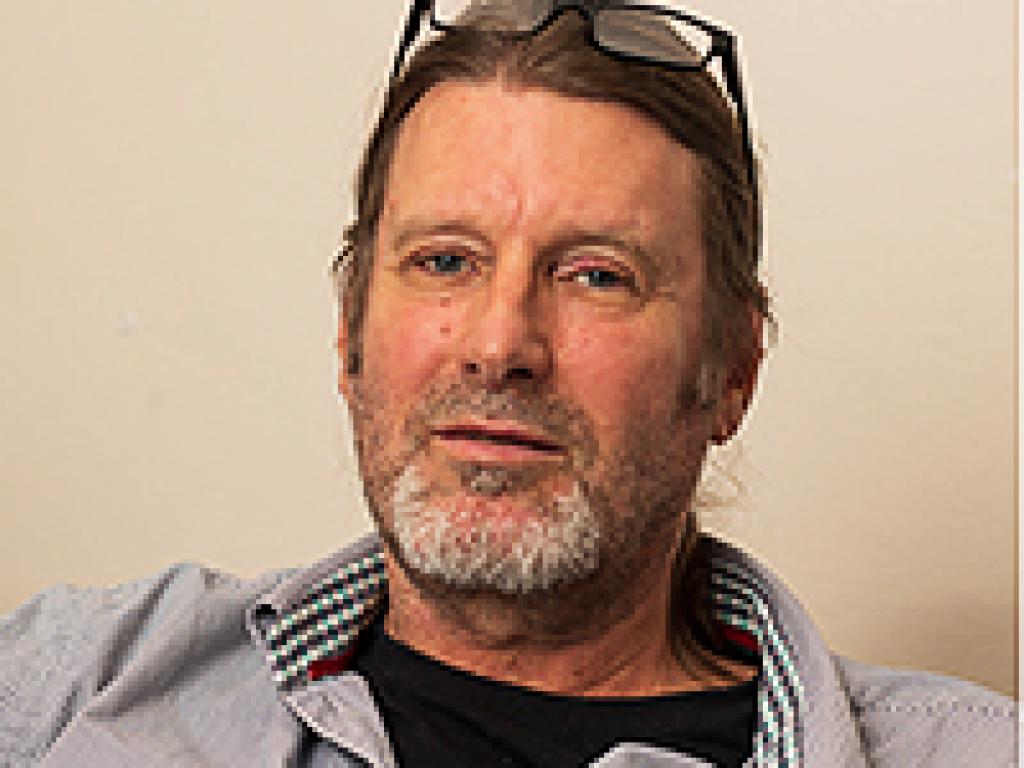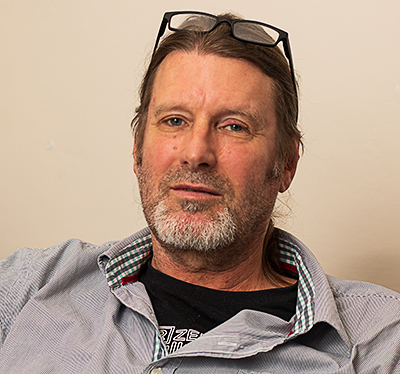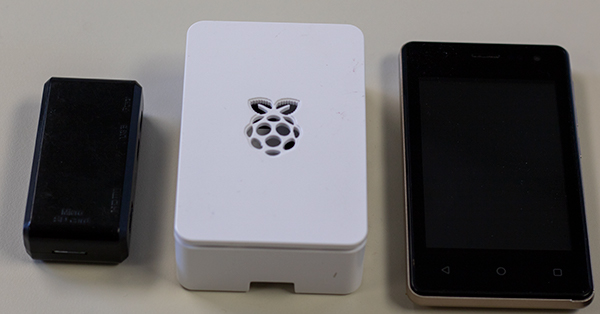Michael Graaf: masters


After completing an honour’s degree in cultural and media studies, and dabbling with mainframes in the early 1980s, Michael took a while to complete his master’s, needing special dispensation to extend his study period. But he has plenty of good reasons, including a stint on the eThekwini City Council as a representative of environmental party Ecopeace, and helping to setup a community network in the Eastern Cape.
The master’s course includes coursework and a minor research dissertation and is aimed students without an academic background in computer science.
Michael’s interest in information technology comes after years of activism in civil society and he believes civil society is a worthy recipient of the benefits technology can bring.
“I’ve witnessed that information technology has totally transformed the work that civil society has to do and the challenges it faces. I realised I had to move with the times,” says Michael.
Michael sees community informatics as the practical, and even political, end of computer science: “making information technology more useful to civil society.” He is currently involved with the setup of nano servers that connect people on the very ‘edge’ of the Internet with useful information, such as health documentation, or reference material for school children. For instance, people waiting in a rural clinic could watch health videos. The information on these servers can be accessed from smartphones and tablets.
These tiny devices – the smaller ones are about 6cm long – can be battery-powered and can create a hotspot that many people can connect to. Michael is working is create a southern African version of the device that is already available in south Asia.
“These nano servers are useful in many different realms. One of the areas I’m involved in is community networks.” Communities are using these networks to create their own phone and/or Internet infrastructure. “The market only provides for people who can pay the high prices for data,” says Michael.
Communities can now build their own infrastructure to buy connectivity in bulk and then share it within rural and township communities. Only one of these networks is up and running in South Africa, but there are several that are under construction. This is one of the areas Michael is interested in. “Content delivery on the edge of the Internet where connectivity is unreliable and/or expensive, and/or unavailable. These projects are part of community network support.”
Development of a network in Ocean View has begun. Find out more about the community work here: iNethi.net.

Two nano servers next to a smart phone (for size comparison)
